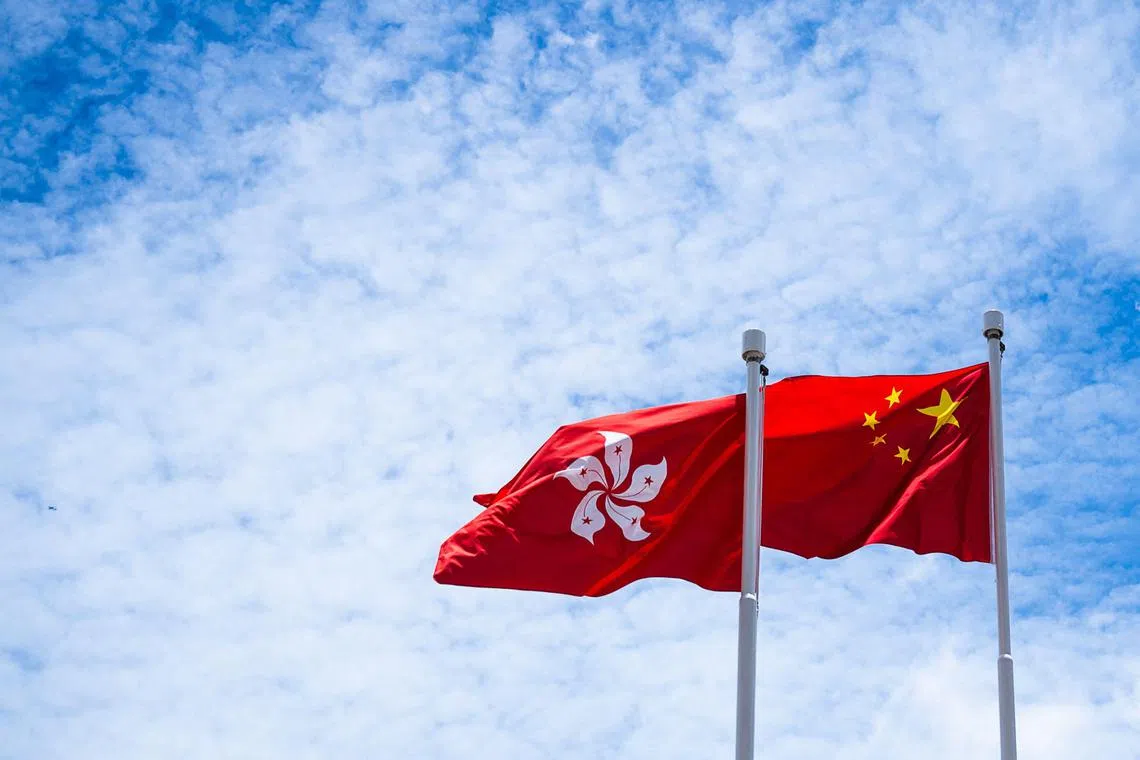Hong Kong security law arrests ‘stifle freedom of expression’: EU spokesperson
Sign up now: Get ST's newsletters delivered to your inbox

The arrests suggest that the new law is used to stifle freedom of expression of the people of Hong Kong, said an EU spokesperson.
PHOTO: AFP
Follow topic:
HONG KONG - The arrests of six people under Hong Kong’s new national security law
The six were arrested on May 28 for publishing “posts with seditious intention”
Hong Kong’s security chief identified one of those arrested as Ms Chow Hang-tung, a prominent activist who led the now-disbanded group that used to organise annual vigils to mark the event.
“The arrests seem to confirm the EU’s concerns about the new law and its effect on the rights and freedoms of the people of Hong Kong,” the EU spokesperson told AFP.
“While we need to assess the details of the individual cases, the arrests suggest that the new law is used to stifle freedom of expression of the people of Hong Kong.”
The EU “calls on the Hong Kong authorities to protect the ability of the people of Hong Kong to exercise their rights and freedoms”, said the spokesperson.
The six were the first people to be arrested under the Safeguarding National Security Ordinance – commonly referred to as Article 23 – which Hong Kong enacted in March and penalises sedition with up to seven years in prison.
Passed by an opposition-free legislature, Article 23 became Hong Kong’s second national security law, following a Beijing-imposed security law that came into effect in 2020.
The United States, the European Union, Japan and Britain have been among Article 23‘s strongest critics.
Silencing critique
Amnesty International’s China director Sarah Brooks called the arrests a “shameful attempt to prohibit people from marking the upcoming anniversary”.
The government has weaponised the new security law to “silence critique”, despite warnings from United Nations human rights experts, said Ms Brooks.
Hong Kong used to be the only place on Chinese soil where people could openly mourn those who died on June 4, 1989, when the government sent troops to crush demonstrations in Beijing calling for political change.
Ms Chow is already serving a more than 30-month jail sentence over other charges, including “unauthorised assembly” for her attempt to publicly commemorate June 4.
She and two other leaders of the group who organised the vigil are awaiting trial for another national security case, where they are accused of “incitement to subversion”.
The authorities connected Ms Chow’s latest arrest to a Facebook page called “Chow Hang-tung Club”, which in recent weeks has called on the public to write about their experiences related to Tiananmen vigils.
“We hope that all Hong Kongers worldwide... who have participated in the candlelight vigils over the past 30 years will write testimonies together,” one post read.
The vigil, which once drew tens of thousands to Hong Kong’s Victoria Park, has been banned since 2020. AFP

